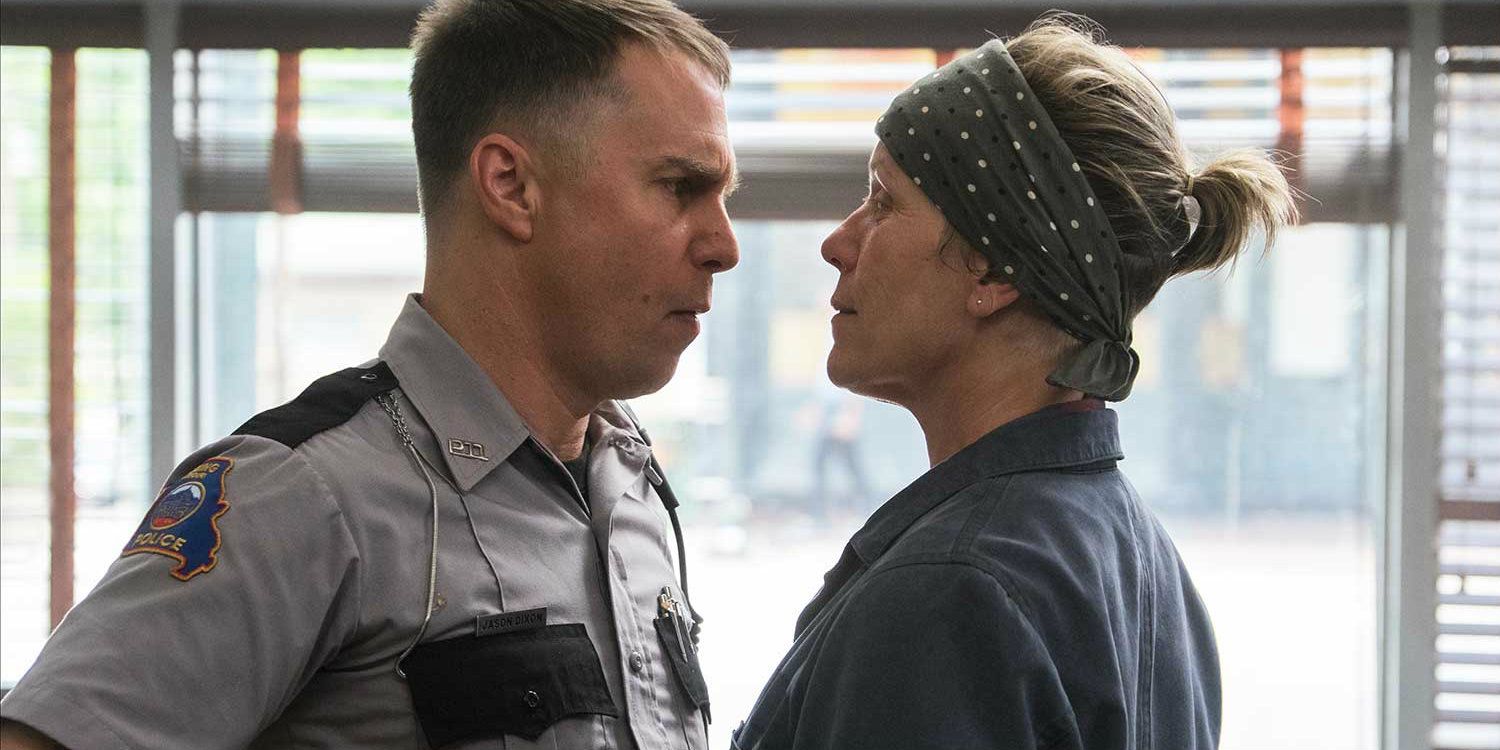Director Martin McDonagh opens up about the backlash surrounding Sam Rockwell's Oscar-winning role as a racist cop in Three Billboards Outside Ebbing, Missouri. Three Billboards follows a mother who sets up three large billboards outside her hometown of Ebbing, Missouri, which are intended to challenge the local police force to find her daughter's killer. The film features a stellar cast with Frances McDormand, who won a Best Actress Oscar for the role, Woody Harrelson, Caleb Landry Jones, Abbie Cornish, Lucas Hedges, Peter Dinklage, and Rockwell. The 2017 film was praised by critics and also earned Oscar nominations for Best Original Screenplay and Best Picture, while Harrelson also nabbed a nomination for his performance.
SCREENRANT VIDEO OF THE DAY
McDonagh has a history of writing rough, yet likable characters, like Colin Farrell's Ray from In Bruges or any number of characters from Seven Psychopaths. Three Billboards also saw McDormand playing a similar character in Mildred, who was crass yet sympathetic, and his newest film, the upcoming The Banshees of Inisherin starring Farrell and Brendan Gleeson, promises to feature the same. However, Rockwell's Dixon, a racist police officer, drew backlash from some audiences who took issue with the character's arc. Dixon begins as an antagonistic character, being loathed by Mildred and the audience alike before he ultimately helps her by the end of Three Billboards. While many saw it as a character seeing the error of his ways and making a change for the better, some audiences took issue with a racist character being given a moment of redemption.
While speaking with The Guardian, McDonagh touches upon the Three Billboards backlash surrounding Rockwell's Dixon. He honestly conveys what he had hoped to achieve with the part, and how audiences didn't quite understand his intentions. Check out McDonagh's comments on the Three Billboards Outside Ebbing, Missouri backlash below:
"I could see where that debate could come from, but I thought it was not seeing what I see in the film. The bait in the whole idea was: what's a villain and what's a hero? But I don't know. Basically, if someone's calling your film racist, and you wrote and directed it, that means they're calling you a racist. And I've always been so anti that, that, yes, it's hurtful. No one wants to be called that. … Put a warning in the programme notes, sure, but let the character be who they are. Trust your audience to have the intelligence to know I'm not using these words. Characters need to be whatever they need to be. If they're nice, fine. If they're homophobic, you've got to know it's the character. If there are racist words, then that's to show an audience that this part of Ireland is racist. Or we're going in a direction of a bland, inoffensive nothingness."
Three Billboards Isn't The Only Film To Deal With Backlash Over Racism

Three Billboards Outside Ebbing, Missouri is not the first film to deal with backlash over perceived racism. Even in recent years, there have been several films that audiences have called out over questionable choices. For example,The Great Wall, a film about defending the Great Wall of China from monsters, received pushback for casting Matt Damon as the ostensible lead which many pointed to as another instance of the long-standing white savior trope. The recent Don't Worry Darling sparked some backlash over the news that several scenes involving KiKi Layne, the movie's most prominent Black star, had been cut. These are on top of several films that have been accused of whitewashing, such as Ghost in the Shell, Doctor Strange, and this year's Bullet Train.
While Hollywood is far from perfect in terms of appropriate representation, often playing on clichés, modern audiences are becoming less accepting of antiquated ideas. Some filmmakers and actors have taken this to heart, like Ed Skrein, who walked away from a role in the Hellboy remake after his casting was labeled as whitewashing. However, Three Billboards' Dixon is a bit of an outlier, as the role won several awards for Rockwell, with many backing the redemption arc as a positive outcome. Therefore, even with strides being made by Hollywood to address these characters and stories for modern audiences, it often presents a fine line for filmmakers to walk, and not every viewer is going to agree with how delicate matters are handled. Still, Three Billboards Outside Ebbing, Missouri is a critically acclaimed film with similar love from most audiences, making Dixon's character controversy open for debate.
